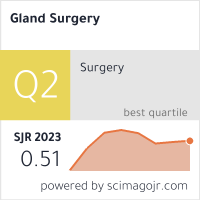THE IMPACT OF CONTINUING EDUCATION ON THE EFFICIENCY AND PERFORMANCE OF HEALTHCARE PRACTITIONERS ACROSS DIFFERENT SPECIALTIES
Abstract
This study explores the impact of continuing education (CE) on the efficiency and performance of healthcare practitioners across various specialties. Continuing education is essential in the healthcare industry due to the rapid evolution of medical knowledge, technology, and practices. The study examines how different types of CE programs—ranging from formal courses to self-directed learning—affect healthcare professionals' clinical performance, decision-making, patient outcomes, and job satisfaction. Data was collected from a diverse group of healthcare practitioners, including doctors, nurses, and allied health professionals, working in multiple specialties. The findings suggest that participation in ongoing education positively influences practitioners' knowledge retention, skill enhancement, and overall job efficiency. Furthermore, healthcare practitioners who engaged in CE were observed to have improved patient care practices, better adaptation to new technologies, and higher levels of professional satisfaction. However, the study also identifies challenges such as time constraints and the variable quality of educational programs across specialties. The results highlight the need for tailored, specialty-specific CE programs and institutional support to ensure optimal outcomes. This study underscores the crucial role of continuing education in maintaining the competence and performance of healthcare practitioners, ultimately leading to improved healthcare delivery and patient care.





